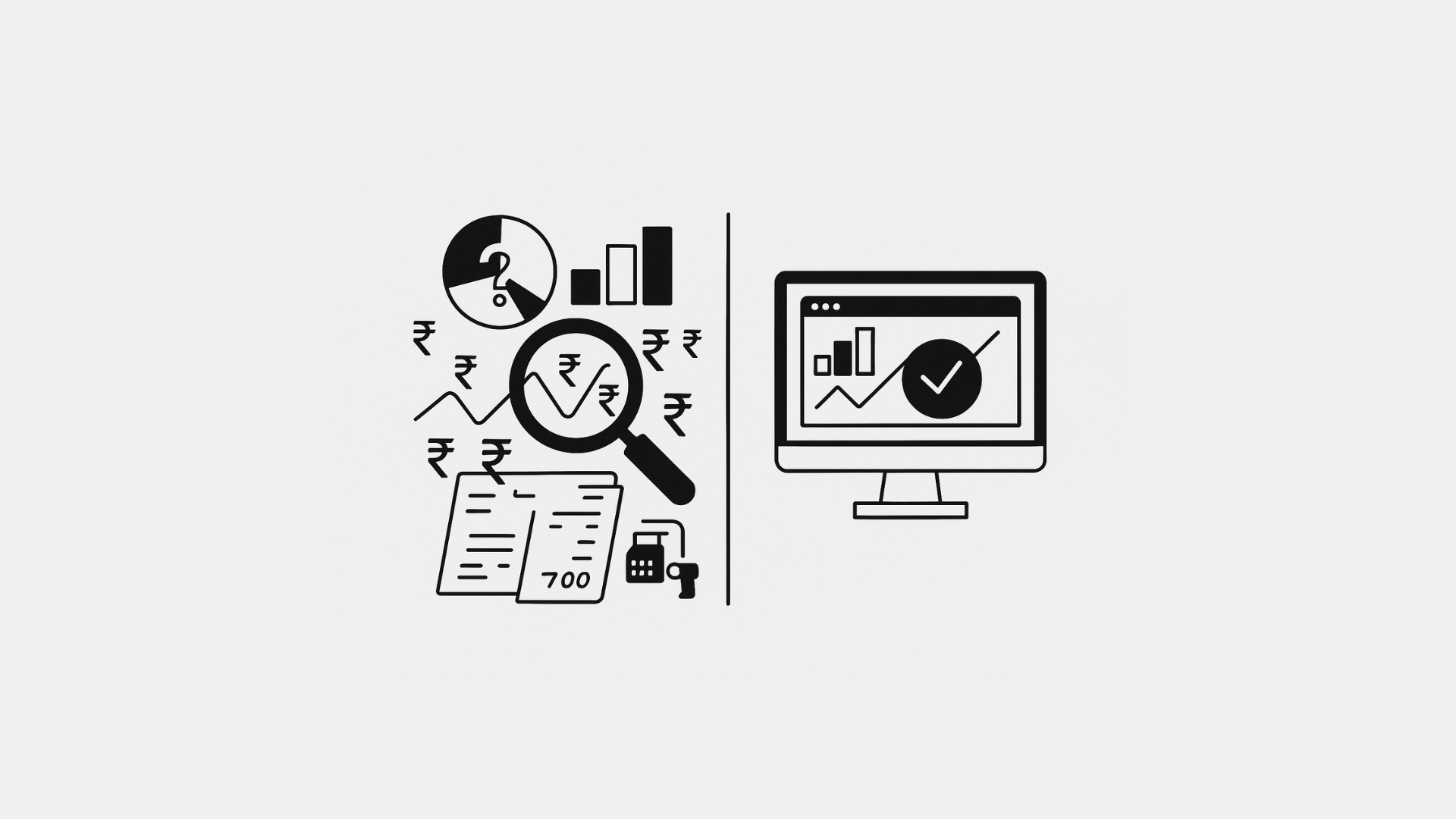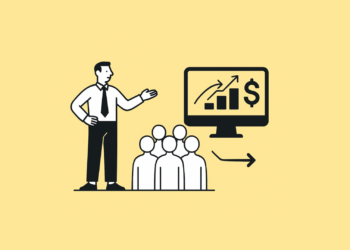The accounting industry is one of many that have started utilizing cloud computing in recent years. Even if it works, traditional accounting software has drawbacks that can be detrimental to organizations in the connected, fast-paced world of today. These restrictions include the need for complicated maintenance procedures, limited access, and frequently high upfront expenses.
The latest answer to many of the drawbacks of conventional accounting techniques is cloud-based accounting software. In this blog post, we’ll examine cloud-based accounting software’s definition, operation, salient characteristics, and advantages for companies of all kinds.
Understanding Cloud-Based Accounting Software
Definition
Cloud-based accounting software is a financial management system that is hosted on remote servers and accessed via the internet. Unlike traditional accounting software installed on a local computer or network, cloud-based solutions allow users to manage their financial data from anywhere with an internet connection.
How It Differs from Traditional Accounting Software
The primary differences between cloud-based and traditional accounting software lie in their accessibility, maintenance, and cost structure:
- Accessibility:
Cloud-based software can be accessed from any device with an internet connection, while traditional software is typically limited to specific computers where it’s installed.
- Maintenance:
With cloud-based solutions, the service provider handles updates and maintenance. Traditional software often requires manual updates and may need IT support for maintenance.
- Cost:
Cloud-based software usually operates on a subscription model with lower upfront costs, whereas traditional software often requires a significant initial investment and additional costs for upgrades.
Importance in Today’s Business Environment
Cloud-based accounting software has become essential for modern businesses due to several factors:
- Remote work trends:
As more companies adopt remote or hybrid work models, the ability to access financial data from anywhere becomes crucial.
- Real-time collaboration:
Cloud-based solutions allow multiple team members to work on financial data simultaneously, improving teamwork and decision-making.
- Scalability:
As businesses grow, cloud-based software can easily accommodate increased users and more complex accounting needs without requiring significant changes to the existing setup.
How Cloud-Based Accounting Software Works
Hosting on Cloud Servers
Cloud-based accounting software is hosted on remote servers managed by third-party providers. Usually housed in safe data centers, these servers are kept up to date by professionals who guarantee the dependability and efficiency of the system.
User Access
Users access the software through web browsers or mobile apps from any internet-enabled device. This could be a tablet, smartphone, laptop, or desktop computer. After logging in with secure credentials, users can view and manage their financial data as if the software were installed on their local device.
Real-Time Data Processing
One of the key advantages of cloud-based accounting software is its ability to process data in real-time. When a user enters a transaction or makes an update, the information is immediately processed and reflected across the system. This guarantees that financial data is correct and up to date always.
Data Storage and Security
Financial data is stored securely in the cloud, protected by various security measures:
- Encryption: Data is encrypted both during transmission and when stored, making it complicated for unauthorized parties to access or decipher the information.
- Regular backups: Cloud providers perform frequent backups of data, reducing the risk of data loss due to hardware failures or other issues.
- Physical security: Data centers housing the servers are equipped with advanced security measures to protect against physical threats.
Multi-User Collaboration
Cloud-based accounting software allows multiple users to work on the same set of financial data simultaneously. User permissions can be set to control access levels, ensuring that sensitive information is only accessible to authorized personnel.
Key Features of Cloud-Based Accounting Software
Accessibility Anywhere, Anytime
Users can access their financial data from any location with an internet connection, at any time. Businesses that have various office locations or employ remote workers will find this capability especially beneficial.
Real-Time Financial Data
Cloud-based accounting software provides up-to-the-minute financial information. Live dashboards enable organizations to make deft decisions based on up-to-date information by providing rapid insights into critical financial parameters.
Automation of Routine Tasks
Many cloud-based accounting solutions offer automation features for routine tasks, such as:
- Invoicing: Automatically generate and send invoices to customers.
- Bank reconciliation: Match transactions in the accounting software with bank statements automatically.
- Expense management: Capture and categorize expenses automatically from receipts or bank feeds.
Scalability and Flexibility
As a business grows, cloud-based accounting software can easily accommodate increased users, transactions, and more complex accounting needs. Many providers offer tiered plans that allow businesses to add features as needed.
Enhanced Data Security
Cloud-based accounting software typically includes robust security features:
- Data encryption
- Multi-factor authentication
- Regular security updates
- Compliance with industry-standard security protocols
Integration with Other Business Tools
Many cloud-based accounting solutions can integrate with other essential business tools, such as:
- Customer Relationship Management (CRM) systems
- Payroll services
- Point of Sale (POS) systems
- E-commerce platforms
This integration helps create a more unified business management ecosystem.
Compliance and Tax Management
Cloud-based accounting software often includes features to help businesses stay compliant with tax laws and accounting regulations. These may include:
- Automatic tax calculations
- Built-in tax forms and reports
- Updates to reflect changes in tax laws
Cost Efficiency
Cloud-based solutions often prove more cost-effective than traditional software due to:
- Lower upfront costs (subscription-based model)
- Reduced IT maintenance expenses
- No need for expensive hardware to run the software
Automatic Software Updates
Cloud-based accounting software is regularly updated by the provider. These updates may include:
- New features and improvements
- Security enhancements
- Bug fixes
Users always have access to the latest version without needing to install updates manually.
Reporting and Analytics
Most cloud-based accounting solutions offer a range of reporting and analytics tools:
- Customizable financial reports
- Visual representations of financial data (charts, graphs)
- Advanced analytics for business insights
Data Ownership and Exportability
Despite being hosted in the cloud, users retain ownership of their financial data. Most cloud-based accounting software allows users to export their data in various formats, ensuring that businesses always have access to their financial information.
Benefits of Using Cloud-Based Accounting Software
Cost Savings
Cloud-based accounting can lead to significant cost savings through:
- Lower upfront investment compared to traditional software
- Reduced IT maintenance expenses
- Elimination of costs associated with manual data backup and storage
Increased Collaboration
Teams can work together more effectively with cloud-based accounting software:
- Multiple users can access the same data simultaneously
- Real-time updates ensure everyone is working with the most current information
- Controlled access levels maintain data security while allowing necessary collaboration
Enhanced Flexibility
The ability to access financial data anytime, anywhere, and from any device provides businesses with enhanced flexibility:
- Remote work becomes easier to manage
- Business owners can keep an eye on finances even when away from the office
- Accountants can work with clients’ data without needing to be on-site
Improved Decision-Making
Real-time data and advanced analytics tools enable businesses to make more informed decisions:
- Up-to-date financial information allows for timely responses to market changes
- Detailed reports and forecasts help in strategic planning
- Quick access to key performance indicators aids in performance monitoring
Scalability for Growing Businesses
Cloud-based solutions can easily scale as a business grows:
- Add users or features without significant infrastructure changes
- Accommodate increasing transaction volumes
- Add more complex accounting functions as needed
Security and Compliance
Cloud-based accounting software often provides better security and compliance features than many small to medium-sized businesses could implement on their own:
- Professional-grade security measures protect sensitive financial data
- Regular updates ensure compliance with changing regulations
- Automated backups reduce the risk of data loss
Choosing the Right Cloud-Based Accounting Software
Key Considerations
When selecting a cloud-based accounting solution, consider the following factors:
- Business size and complexity of accounting needs
- Specific features required (e.g., multi-currency support, inventory management)
- Budget for software subscription
- Ease of use and user interface
- Quality of customer support
- Integration capabilities with other business tools
- Scalability to accommodate future growth
Popular Cloud-Based Accounting Platforms
While we don’t endorse specific products, it’s helpful to understand some of the well-known options in the market. Here’s an overview of three popular cloud-based accounting platforms:
QuickBooks Online:
Target audience: Small to medium-sized businesses
Key features:
- Invoice creation and management
- Expense tracking
- Bank account connection for automatic transaction import
- Basic inventory management
- Payroll processing (additional fee may apply)
- Multiple user access with permission settings
Strengths:
- Wide range of features suitable for various business types
- Large network of QuickBooks-certified accountants
- Extensive third-party app integrations
Considerations:
Can be complex for users without accounting background
Higher-tier plans can be costly for small businesses
Xero:
Target audience: Small businesses and their advisors
Key features:
- Invoicing and quoting
- Bank reconciliation
- Inventory tracking
- Project time and cost tracking
- Multi-currency support
- Payroll management in some countries
Strengths:
- User-friendly interface
- Unlimited users on all plans
- Strong reporting capabilities
Considerations:
Some advanced features are only available on higher-tier plans
U.S. payroll features not as robust as some competitors
FreshBooks:
Target audience: Self-employed professionals and small service-based businesses
Key features:
- Time tracking and project management
- Customizable invoices
- Expense management
- Accept online payments
- Basic reporting
- Client portal for easier collaboration
Strengths:
- Very user-friendly, designed for non-accountants
- Strong focus on invoicing and time tracking
- Good mobile app for on-the-go management
Considerations:
- Limited inventory tracking features
- Might not be suitable for larger businesses with complex needs
When choosing between these platforms, consider the following:
- Business size and type: QuickBooks Online and Xero cater to a wide range of businesses, while FreshBooks is particularly good for service-based small businesses.
- Feature requirements: Assess which platform offers the specific features your business needs most.
- Ease of use: FreshBooks is known for its user-friendly interface, while QuickBooks Online might require more accounting knowledge.
- Scalability: Consider how well the platform can grow with your business. QuickBooks Online and Xero offer more scalability for growing businesses.
- Integration needs: Check which platform integrates best with your other business tools.
- Budget: Compare pricing plans and ensure they align with your budget, considering both current and future needs.
Remember, these are just a few of the many cloud-based accounting platforms available. It’s important to research thoroughly and test different options to find the best fit for your specific business needs.
Implementation Tips
To smoothly transition from traditional accounting software to a cloud-based system:
- Plan the transition carefully, choosing a time that will minimize disruption
- Ensure data is correctly migrated from the old system to the new one
- Provide thorough training to all staff who will use the new system
- Start with a trial period if possible to ensure the chosen solution meets your needs
- Gradually phase out the old system as users become comfortable with the new one
Common Challenges and Solutions
Potential Barriers
Businesses might face several challenges when adopting cloud-based accounting software:
- Concerns over data security and privacy
- Resistance to change from staff accustomed to traditional methods
- Internet connectivity issues affecting access to the software
- Potential learning curve for new users
Solutions
To overcome these challenges:
- Choose a reputable provider with strong security measures and a proven track record
- Educate staff on the benefits of the new system and provide comprehensive training
- Ensure reliable internet connectivity, possibly with a backup option
- Start with basic features and gradually introduce more advanced functionality
Conclusion
Cloud-based accounting software represents a significant advancement in financial management technology. Compared to traditional accounting software, it has many benefits, such as stronger security measures, real-time data processing, more accessibility, and better cooperation.
Cloud-based accounting software allows organizations to manage their accounts more efficiently, which leads to cost reductions, better decision-making, and overall greater financial health. Cloud-based accounting solutions should become more and more crucial to the financial administration of businesses as technology advances.
While the transition to cloud-based accounting software may present some challenges, the long-term benefits often outweigh the initial hurdles. Companies of all sizes ought to investigate cloud-based accounting options to see if this cutting-edge method of managing their finances would be advantageous for them.
FAQ Section
1. What is cloud-based accounting software?
With cloud-based accounting software, customers may manage their financial data from any internet-connected device. The financial management system is hosted on remote servers and accessed online.
2. How does cloud-based accounting software differ from traditional accounting software?
The main differences lie in accessibility (cloud-based can be accessed from anywhere), maintenance (handled by the provider for cloud-based), and cost structure (typically subscription-based for cloud solutions).
3. Is cloud-based accounting software secure?
Yes, reputable cloud-based accounting software providers implement strong security measures, including data encryption, regular backups, and compliance with industry-standard security protocols.
4. What are the costs associated with cloud-based accounting software?
Costs typically involve a monthly or annual subscription fee, which can vary based on the features and number of users. There are usually lower upfront costs compared to traditional software.
5. Can cloud-based accounting software integrate with other business tools?
Yes, many cloud-based accounting solutions offer integration capabilities with other business tools such as CRM systems, payroll services, and e-commerce platforms.








